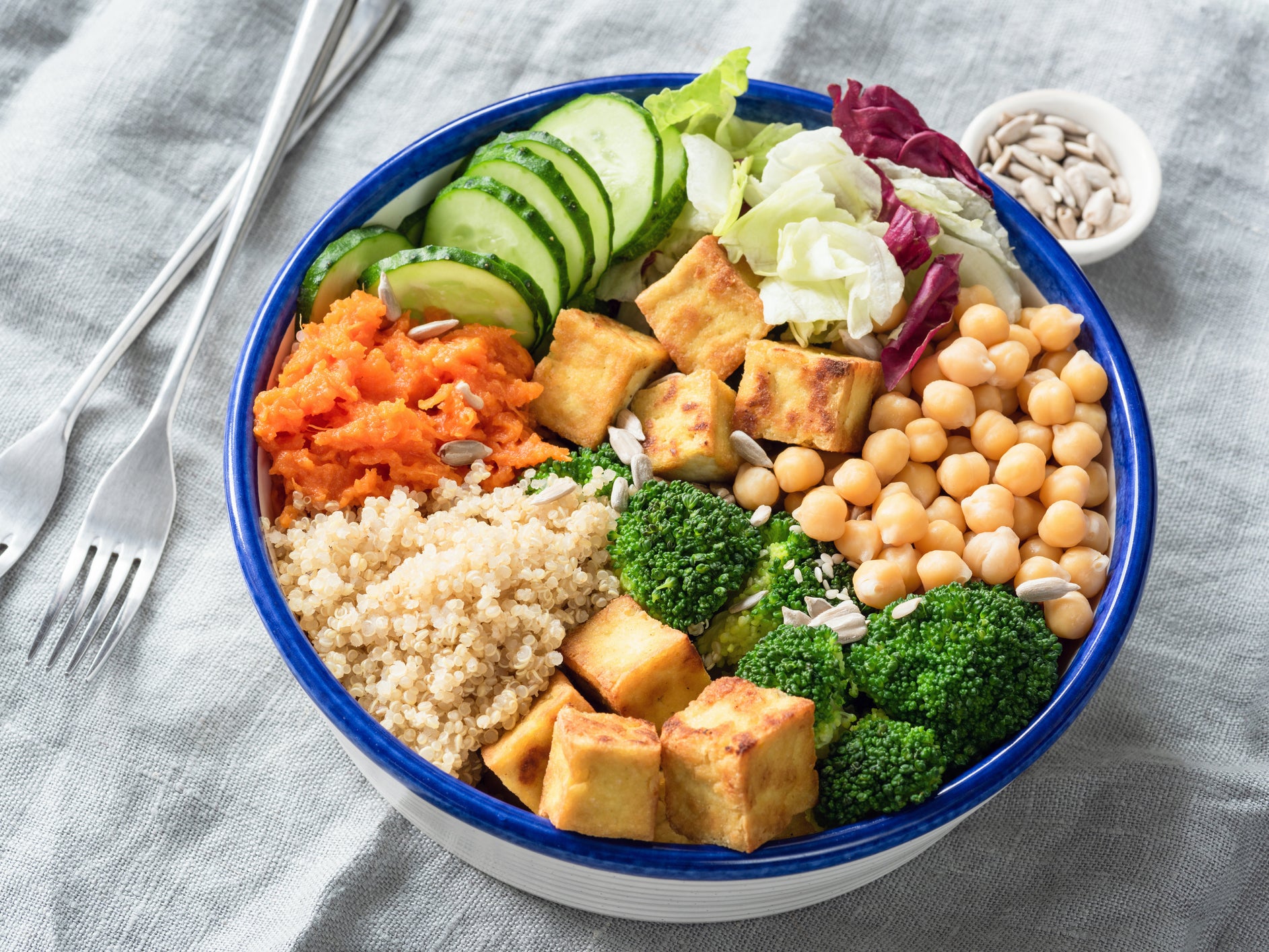The Pros and Cons of a Vegetarian Diet
There are people from different types of cultures and ethnicities that choose a vegetarian diet, for several different reasons. For certain people, a vegetarian diet is a way to live healthily or to avoid consuming hormones that are used in animal foods. For other people, consuming a plant-based diet has more to do with animal rights, environmental concerns, and religion.
Whatever your reasons might be choosing a vegetarian diet, you need to know that the kinds of foods you opt to eat result in a huge difference in the benefits you derive. A vegetarian diet comprising processed foods is unlikely to offer health benefits as compared to a diet filled with nutritious vegetables, fruits, grains, and legumes.
To help you make an informed decision regarding your diet, here is a list of the benefits and drawbacks of a vegetarian diet.
Pros of Vegetarian Diet
There are several advantages of a vegetarian diet when it is followed properly. If you are just avoiding meat but only consuming processed pasta and bread, high amounts of sugar, and very little quantities of fruits and vegetables, you are unlikely to get any of the advantages of this diet. Eating a vegetarian diet is definitely healthier than eating a standard American diet. Plant foods are low in saturated fat and high in the essential vitamins and minerals needed for optimal health.
1. Great for Heart Health
Vegetarians might be one-third less likely to be hospitalized or die due to heart disease. Obviously, food choices matter, regardless of being a vegetarian. If you want the heart benefits of the diet, make sure to opt for legumes, fruits, vegetables, low-glycemic foods, and high-fiber whole grains.
The goal is to eat soluble fibers and pick foods that will allow for stable blood sugar levels. Through this, you might lower your cholesterol levels and overall probability of heart attack.
2. Lowers the Risk of Cancer
People on a vegetarian diet may be at a slight benefit of reducing the risk of cancer. One study revealed that in low-risk populations, a vegetarian diet lowered the risk for cancer. However, another study revealed only a non-substantial reduction in the risk for colorectal cancer among people consuming a vegetarian diet.
Several studies claim that a diet made with fresh vegetables and fruits may be best. Following a vegetarian might make it simpler to get in the daily advisable five servings.
Becoming a vegan exclusively isn’t absolutely important either because a vegetarian diet with high vegetable and fruit intake can also be advantageous.
3. Enhanced Weight Control
Vegetarian diet is usually associated with weight loss. Studies reveal that people consuming a vegetarian diet generally consume lesser calories as compared to an omnivore diet. In fact, researchers have even discovered that the most limiting variation – the vegan diet – is also likely to have the lowest calorie content.
Hence, if you want to keep a healthy weight or want to reach a specific weight goal, the lower daily calorie intake related to vegan or vegetarian eating might help you accomplish your target.
Cons of Vegetarian Diet
While a vegetarian diet provides some major advantages, there might be some disadvantages too.
1. Potential Nutritional Deficiencies
A properly planned vegetarian diet can offer sufficient nutrition. Nevertheless, there are specific important ingredients that are typically found in animal foods that might not be present in a vegetarian diet if the diet doesn’t comprise a variety of healthy foods.
- Zinc: Studies reveal that while zinc consumption is lower in vegetarians, their bodies adjust through improved zinc absorption and retention. Additionally, researchers even say that a properly planned diet can offer sufficient zinc through plant sources like tofu, whole grains, tempeh, nuts, seeds, legumes, dairy products, and enriched breakfast cereals.
- Vitamin B-12: Cobalamin, or Vitamin B-12, is present in the liver, beef, shellfish, chicken, fish, and other types of meat. These foods are not eaten by people following a vegetarian diet. However, eggs along with some dairy products and enriched breakfast cereals do have vitamin B12. Nevertheless, supplementation might be required by those following a vegan or vegetarian diet.
- Vitamin D: A few health experts and researchers have voiced concerns about Vitamin D levels in vegetarians and vegans. Vitamin D is present naturally in egg yolks, fish liver oil, and fish. However, we get most of our vitamin D from sunlight. Two great vitamin D sources for vegetarians include Portobello mushrooms and maitake mushrooms. In addition, fortified grain products and nut milk might help boost your vitamin D consumption during the winter months.
- Omega-3s: Finally, a vegetarian diet might be lacking in Omega-3 fatty acids. However, pumpkin, chia seeds, walnuts, soy, and flax seeds are potent sources of omega-3.
2. Reduced Feelings of Fullness
Studies show that vegetarian diets tend to have lower fat, protein, and calories as compared to omnivore diets. Foods rich in protein and fat help you feel satisfied and full after eating. Certain carbohydrate-rich foods like refined grains or fruit are digested more rapidly and might leave you feeling hungry right after you have eaten a snack or a meal. Consequently, when you start following a vegetarian diet, you might feel hungry more frequently. Nevertheless, proper food choices can help enhance satiety. Whole grains and hearty beans are rich in fiber and help you feel full. Having seeds or nuts as snacks also offers fat and protein to boost satiation after eating.
3. Not Always Healthy
Even though following a vegetarian diet can offer health benefits and allow you to maintain a healthy wealth, it’s not guaranteed. There’s an increasing quantity of heavily processed vegetarian foods. Several times, such foods have sodium, fat, calories, and added sugar than their ordinary counterparts. Depending on these foods results in the same health conditions and restricted food palate associated with the regular American diet.
Additionally, those who pick a less healthy variation of the diet, including refined grains, sweetened beverages, fries, sweets, potatoes, had an increased risk of heart disease.
The Bottom Line
If you want to eat more vegetables and fruits to improve your health, you should consider a vegetarian diet. Keep in mind that going vegetarian doesn’t give you complete freedom to eat whatever you want especially if you are trying to lose weight or eat more nutritious. You don’t really need to limit yourself on fruits, vegetables, and whole grains, but do yourself a favor and try and control your cravings with those other (vegetarian) foods high in saturated fat, such as cheeses, whole milk, and ice creams. While transitioning is usually safe for most people, it is advisable to consult a doctor before making any major changes to your lifestyle or diet. You should also consider discussing with a dietician if you are concerned about fulfilling your nutritional requirements with plant-based foods.



One Comment